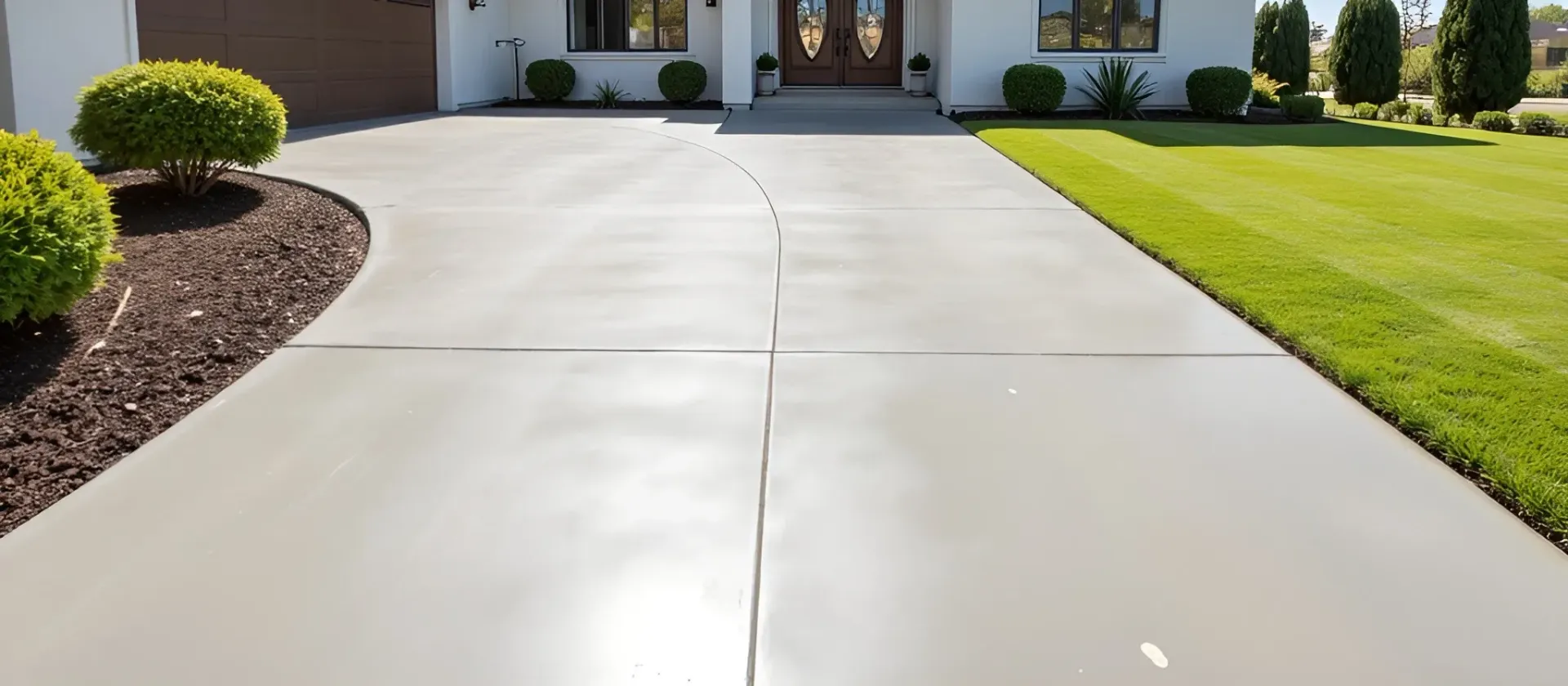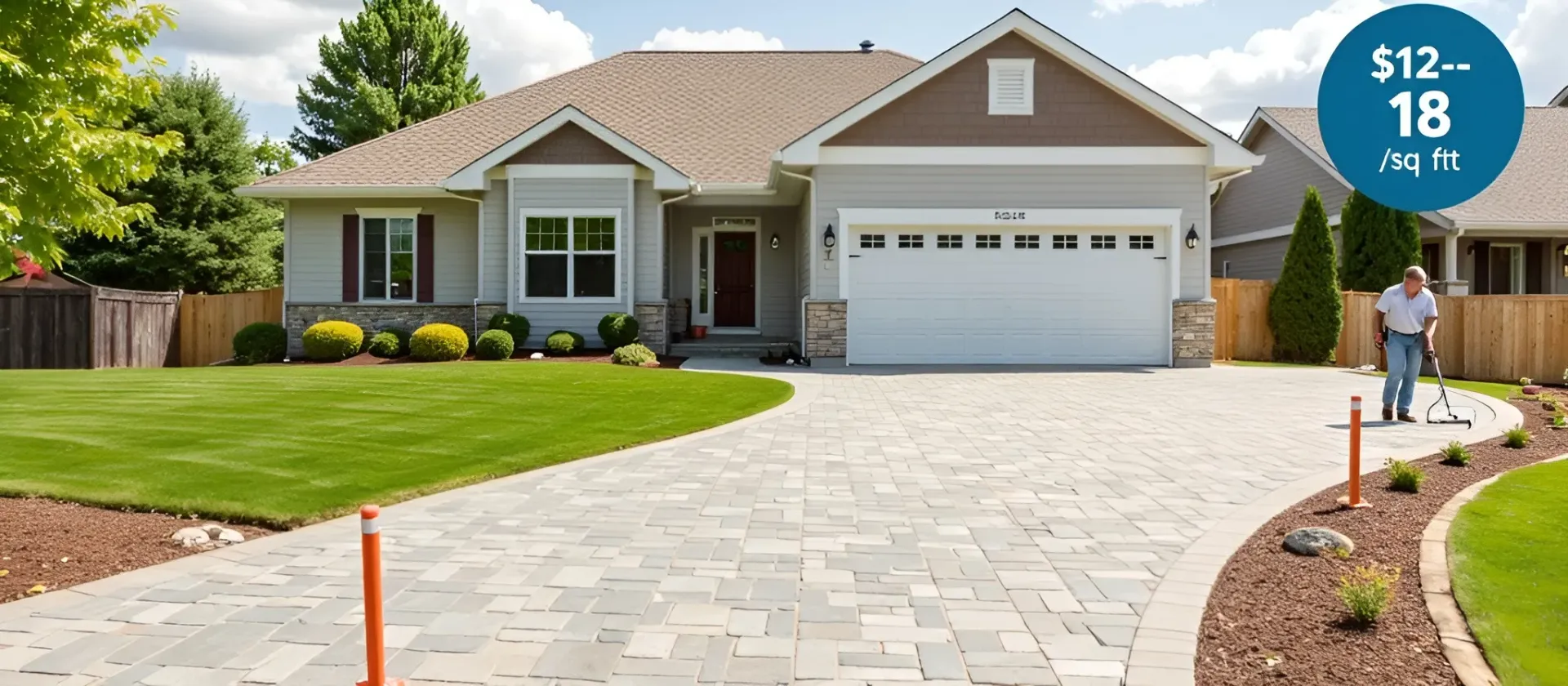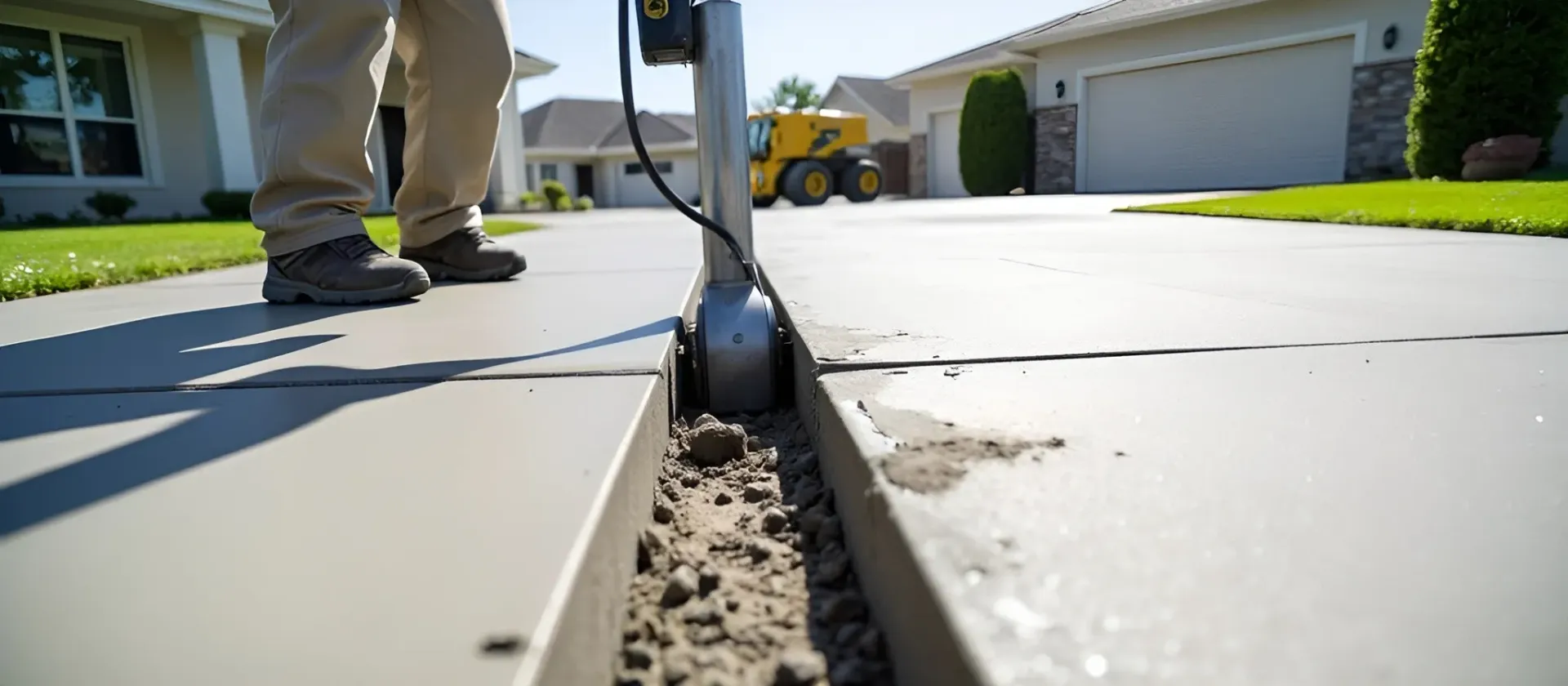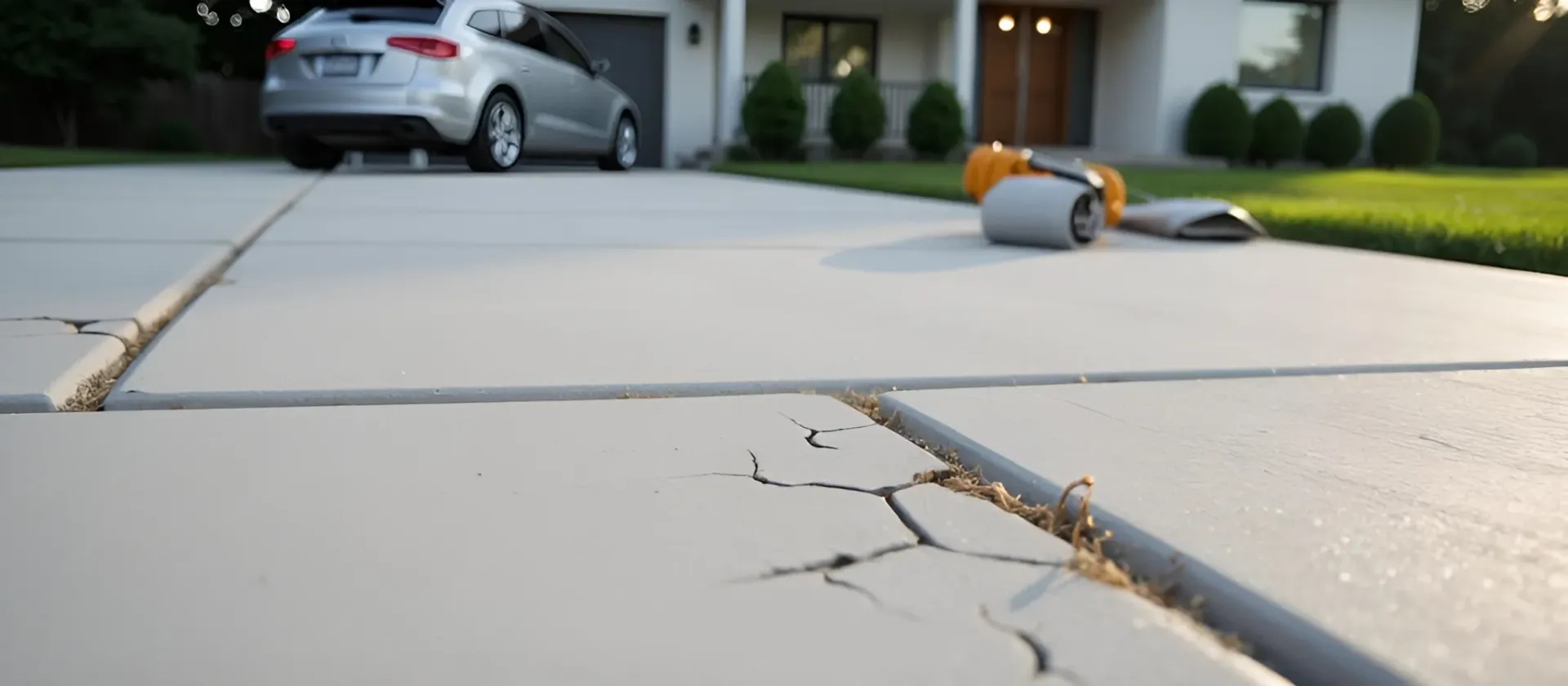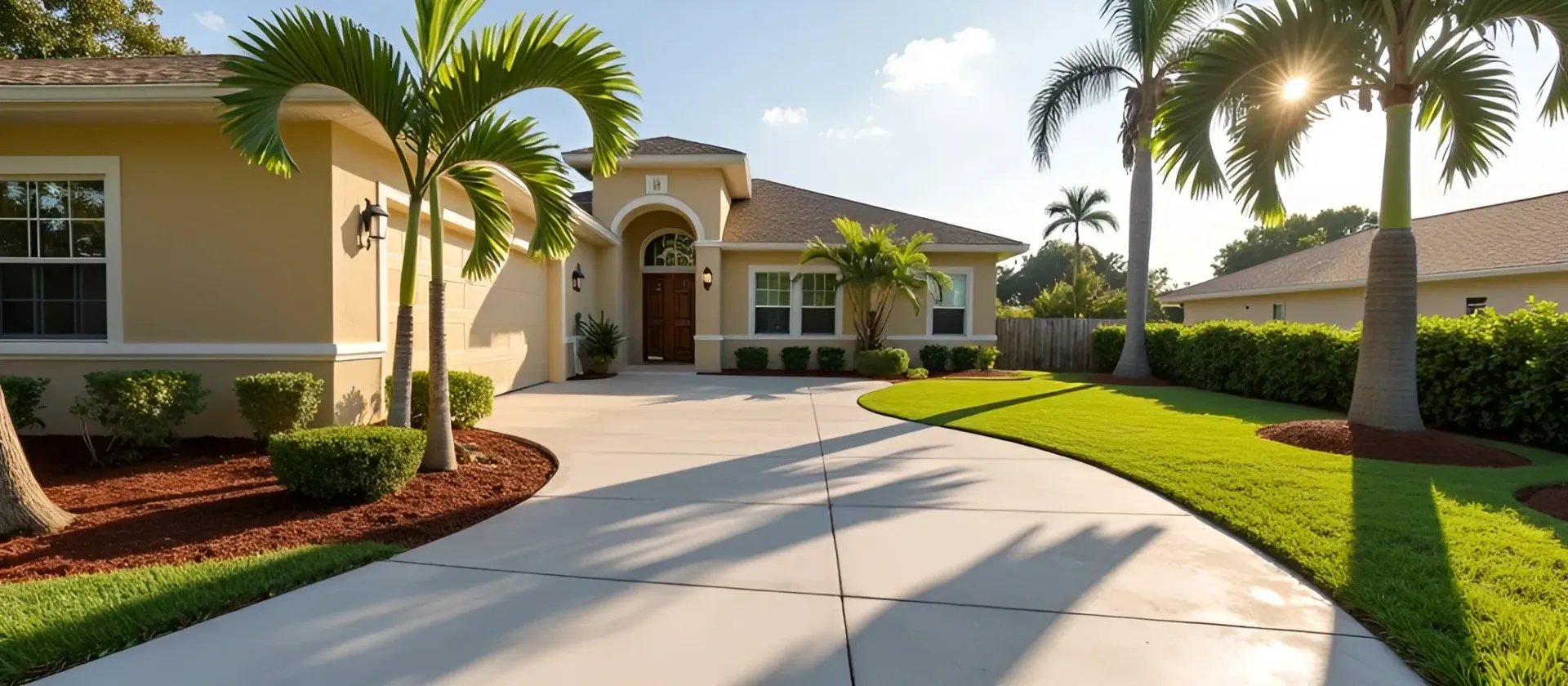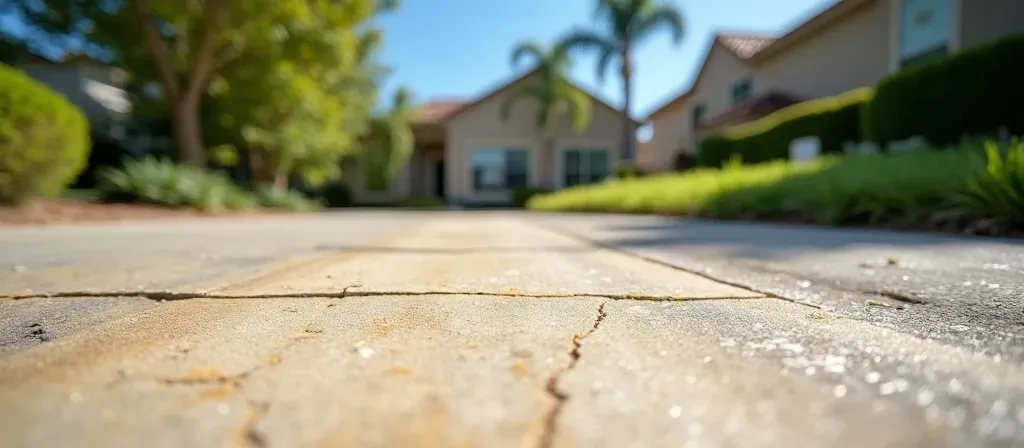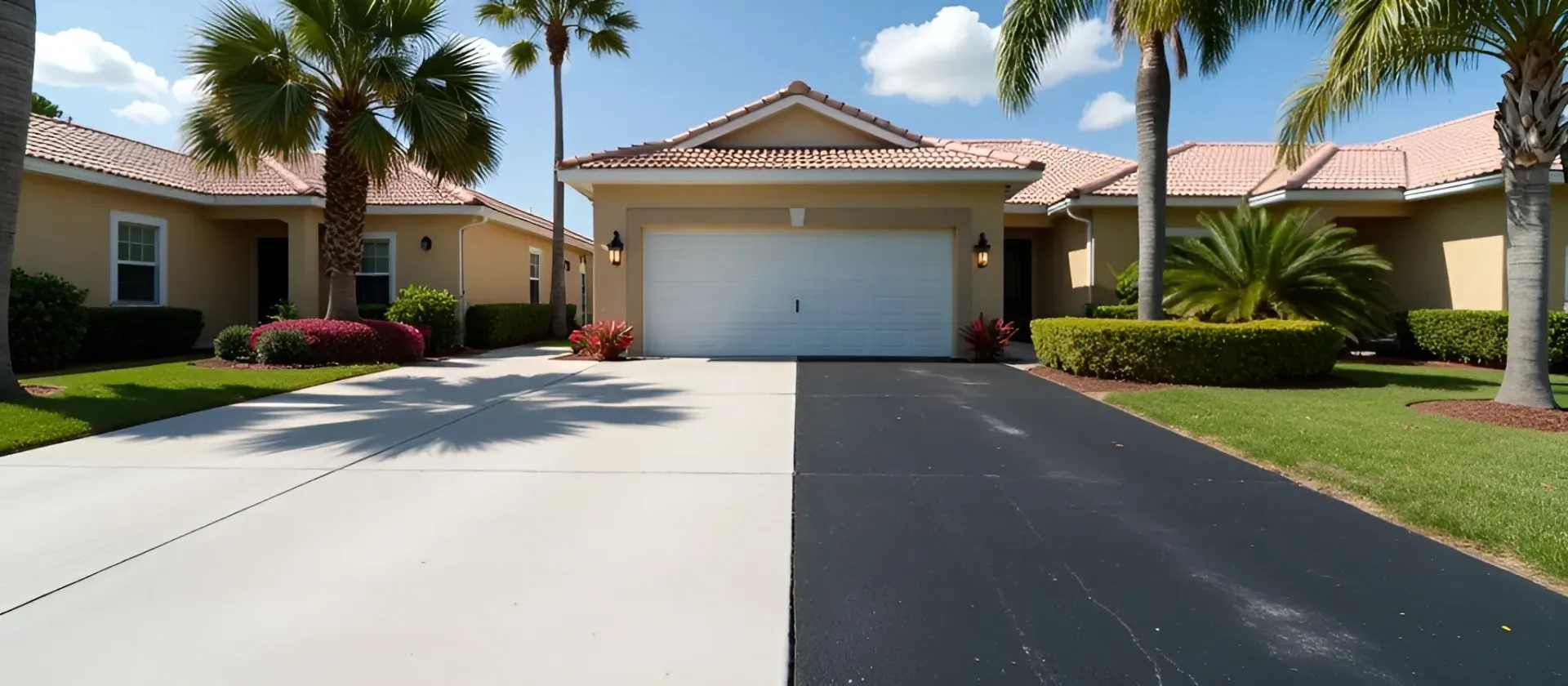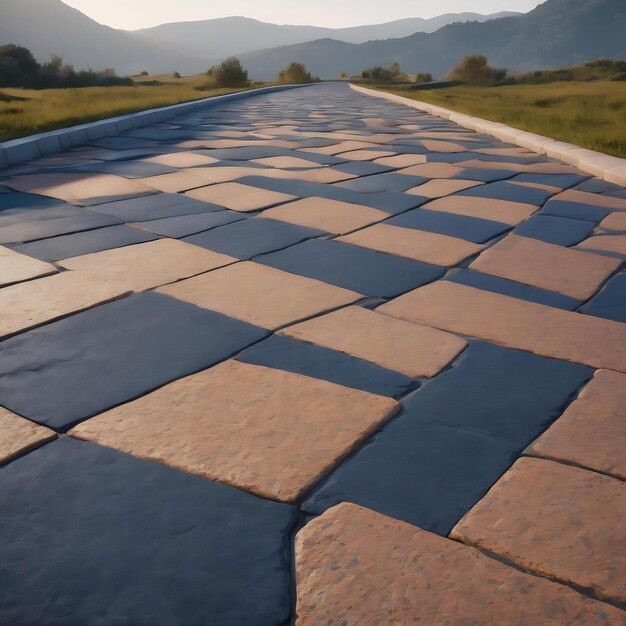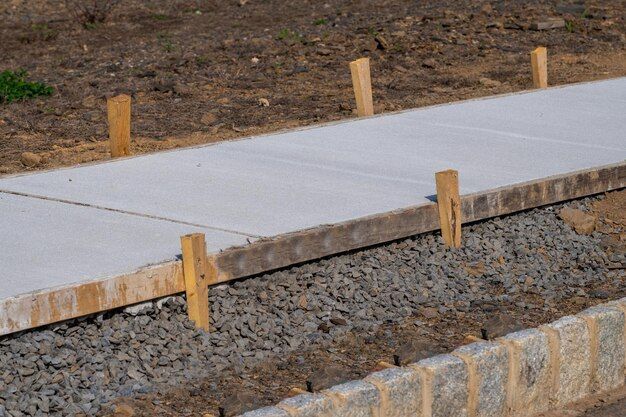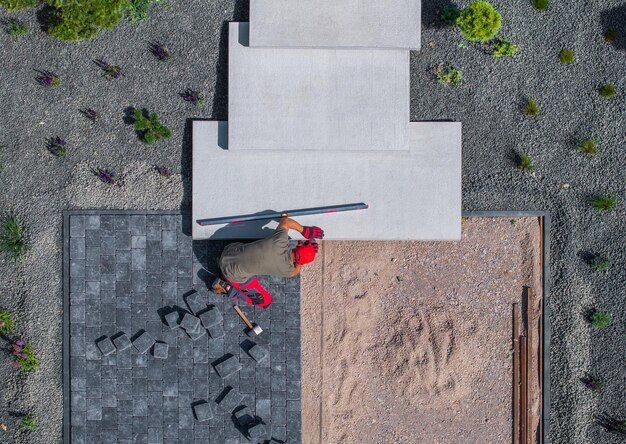Is a Polished Concrete Driveway Slippery? What You Should Know
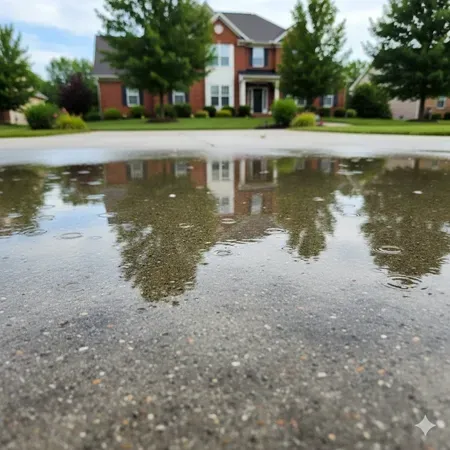
When considering different driveway options, a polished concrete driveway often stands out for its sleek and shiny look, durability, and low maintenance. But many homeowners hesitate to have it in their homes. The reason? Perception of concrete lacking grip and being slippery, especially in rainy or snowy areas.
But is a polished concrete driveway slippery in reality?
Let’s dive deeper to discover the truth and to explore facts about concrete, its slipperiness, and what you should know before getting a concrete driveway or floor for your home.
Some Facts: A Polished Concrete Driveway Slippery or Not?
Popular driveway materials, such as asphalt, stones, and concrete are sometimes crushed, cured or stained to enhance their appearance and functionality.
In the same way, a polished concrete driveway offers a smooth, glossy surface due to grinding and sealing. Although refined and modern, polished surfaces naturally raise concerns about safe traction.
Let’s compare different driveway materials with polished concrete to assess their function, especially slickness.
- Paver Driveways: Offer more grip due to joints but may shift over time, creating uneven surfaces.
- Asphalt Driveways: Provide decent traction but can become slick when greasy or icy.
- Polished/Stained Concrete: Less slippery if sealed with texture, though some glossy sealers can still cause slickness.
In short, polished concrete has the same friction level as other materials. It is no more slippery than most common driveway surfaces. The only thing that makes a difference is how you maintain it.
Factors Influencing the Slipperiness
Slip resistance depends on two main factors: maintenance and surface texture. Some additional factors that influence the sliciness of the polished concrete are:
Surface Finish
The finishing of polished concrete surfaces varies. In contrast to a matte or semi-gloss finish, high-gloss finishing seems gorgeous but may offer less traction. Therefore, a contractor can adjust the polish level to balance safety and aesthetics—similar to how a smooth finish concrete driveway offers elegance with its refined surface.
Moisture and Weather
Another essential factor is rain, snow, or ice, which can make a polished concrete driveway slippery. Condensation can also create slick spots, especially in humid climates. Regular cleaning can prevent the surface from sliding, mold, or algae buildup.
Sealants and Coatings
Certain sealants can make the surface slicker, especially when wet, but they also protect the concrete and improve its sheen. Non-slip additives such as silica or grit can be added to sealers to increase traction.
Slope and Drainage
A sloppy driveway can become more dangerous if built steeply, regardless of the surface type. Thus, proper surface grading and drainage solutions are crucial to reduce pooling water and improve safe traction.
How To Make a Concrete Driveway Safer
If you love the idea of polished concrete but worry about its safety, here are practical ways to minimize slipperiness:
- Regular Cleaning
Polished concrete can become greasy and slippery due to dust, oil spills, or algae growth. However, a quick wash with a pressure washer or mild solvent can maintain consistent traction. - Choosing a Textured Finish
Some homeowners prefer mild brooming or scoring before polishing to get a modest texture and smooth walking. This approach is also common in stamped concrete driveways, where textures improve both style and grip. - Using Mats or Rugs
In rainy weather, textured mats in high-traffic areas, such as the garage or foyer, help prevent slips. - Using De-icing Products
Using safe de-icers helps avoid ice accumulation that could endanger the surface in snowy regions.
Pros and Cons of Polished Concrete Driveways
Polished concrete just requires the proper finishing and maintenance. Here are some pros and cons of the polished concrete:
Pros
- Extremely durable and long-lasting
- Low maintenance compared to pavers or asphalt
- Modern, high-end appearance
Cons
- Higher installation costs
- Resealing needed every few years
- Slippery in wet conditions
- Resistant to heavy traffic and wear
Final Words
So, is a polished concrete driveway slippery? The short answer is yes, especially when wet, but so are the other driveways. Modern flooring techniques have enhanced the safety and overall curb appeal of homes. Although glossy surfaces increase the risks, actual performance depends on regular upkeep and surface texture.
Thus, with the right finish, non-slip sealers, and regular maintenance, you can enjoy a durable and elegant polished concrete driveway without worrying about its slickness and safety.
Still skeptical if a polished concrete driveway is slippery or not? Explore different driveway styles such as smooth finish concrete or stamped concrete to compare traction, aesthetics, and overall safety.

